It is a privilege to give you today’s Five For Writing with Heidi McDonald. One of the leading authorities on romance in games, Heidi is a Narrative Designer for Fire Hose Games. An author and speaker, she has received plenty of critical acclaim. That being said, I give you Five For Writing with Heidi McDonald:
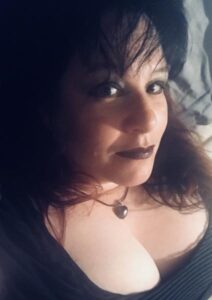 1-You’ve staked out romance in games as territory you’re very comfortable in. How did that come to be?
1-You’ve staked out romance in games as territory you’re very comfortable in. How did that come to be?
In 2003, I played Knights of the Old Republic (KOTOR), which made me want to be a game writer, because it was the first game that ever made me FEEL. Then in 2009, Dragon Age: Origins hit, and sent the feels to a completely new level because of how deep the romance content was (which I found completely by accident). I was so determined to have my relationship with Alistair Theirin turn out the way I needed it to, that I completely re-played 80 hours of the game just so I could end up with him. I’d never been that emotionally invested in a game, ever. I went to school in 2010 to pursue my degrees, and while I was there, Dragon Age 2 came out. In that game, the companions were all “playersexual” (would respond to your romance efforts regardless of the gender of the player).
A professor assigned us to write a paper about “any aspect of any medium we enjoy,” so that meant I was going to write about video games. Right at that same time, there was a big kerfuffle on the BioWare Social Network where a guy who identified as “Straight White Male Gamer” took issue with the fact that there was non-heterosexual content in his game, saying that since he represents the majority demographic, he should be the one catered to. David Gaider (a narrative hero of mine and Narrative Director on Dragon Age at the time) actually came onto the forum and directly answered the guy (which was really SUPER rare) by saying look…that content is optional, you can not play it, or you can play a different game, because our games are for everyone. That’s what made me initially curious: is that how the majority of the players feel? How, why, and who are they romancing, and how does that compare to their romance practices in real life? I had my topic for my paper. I soon realized through an unfruitful search for sources that somehow, nobody had asked those questions yet. So, for my paper, I decided to conduct that research myself, and report the findings.
The paper became a lecture, the lecture became a GDC talk, the GDC talk got picked up in different places around the world; soon I was doing supplemental research that took my original questions further, I co-founded the
Romance and Sexuality in Games SIG with the IGDA, and then in 2017 the book came out (
Digital Love: Romance and Sexuality in Games). It kind of became my thing because I was the first to ask some of those questions. It’s been really rewarding to see other research sprouting from mine and a real industry genre and conversation spring up around it in the past 10 years. Oddly enough, I’d done plenty of work around player engagement and empathy, and plenty of talking and writing about player behavior relating to romance in single-player RPG’s…but I’d done very little actual game writing of romance content. When I went freelance in 2019, my research experience and my samples began to get me actual work doing that, and for the past three years, I’ve actually done a ton of the actual work. So, having “what the players need for it to be fulfilling” from my research equipped me to be better at writing in that genre, though I’ve also developed science fiction and historical fiction as additional specialties. Right now, as Narrative Designer for Fire Hose Games, I’m working on something that’s science fiction. I do expect to turn out more romance in the future, though!
2-As an experienced game developer, do you think there’s a responsibility to younger developers coming up?
Most definitely. When I was new to the industry, I was able to succeed because I had influential people like yourself holding the door open for me and reminding me that I belong. I try to pay that forward for others (particularly people in marginalized communities) in a number of ways, whether that’s teaching young writers at a university or helping with workshop and curriculum planning for friends who teach others, sharing my knowledge through lectures and chapters in how-to books, recommending a colleague, training more junior writers as a lead or senior in the workplace, helping people with portfolios and interview skills, talking shop with people who ask, whether that’s press people, friends who have cool websites, or talking to some high school student who has encountered my work and contacts me out of nowhere. Some folks might be opposed to giving away knowledge so freely because they feel a sense of competition, because in fairness, it has become way more competitive in recent years. Our discipline is pretty over-saturated right now, professionally speaking…hundreds of applications for every one job…but I am still a big believer in the idea that there’s enough opportunity out there for everyone. Also, game writing is a relatively small community, and you’ll quickly get a reputation if you are cool, or if you are a jerk. I’d rather be cool. Besides, you never know which one of these youngsters will write the next breakout game that sells millions of copies and they get millions of VC dollars, they found a studio, and you have to apply to them for your next job. 😉
3-What says good game writing to you?
If a story can emotionally engage me and offer choices that matter to the outcome, that’s a good story. I also really love it when a writer will take a trope and flip it on its head somehow, like, add an interesting twist nobody has seen before, or handle it in an unexpected way. One of the best screenwriting books I read in college (where I majored in Film and Digital Media, alongside a dual major of Communications) was all about how you have to understand genres and conventions in order to break them (I can’t remember the name of it), and for me, effective twisting and breaking of known tropes when done well is just (*chef’s kiss*) awesome and gratifying. I have tried to do that in my own writing, too. The best way I can explain it is writing for Star Trek Timelines...Star Trekis a 50+-year-old genre with established lore and fans who are very particular and passionate about that lore. What I was tasked with as a writer on that IP was both to give the players enough of what they DO expect, balanced with something believable that fits the lore but is NOT expected. That’s how I feel about writing, in general, as it relates to playing with tropes. You want the tropes to be recognizable enough to be accessible to people, but at the same time you want to bring something unexpected to it.
4-What’s the one game writing trope you hope never to see again?
This is endemic both to romance game writing and romance writing at large, but it irks me when a happy ever, the entire end goal, is heterosexual marriage. Not only do I think that doesn’t have to be true, but I think it propagates unhealthy expectations about marriage being the be-all and end-all, and honestly, it’s
hard. Relationships are a lot of work. I’ve been married and divorced three times (yes, the romance writer who keeps getting divorced, it’s ironic, I know…it just means I’m really good at falling in love). Two of them were abusive, and one was a case where over 15 years we didn’t put enough work into US and just, over the course of jobs and children and life, grew apart. The relationship I’m in now is deeper, stronger, and better than any of those marriages were, and we have no plans to marry. We have all the ingredients that matter, we’re doing that important daily work, and don’t want to fix what isn’t broken. Marriage is important to some people, but that shouldn’t mean that it’s required for everyone, in every case. There are happy ways to be which are different from that. I tend to prefer payoffs that are in a very strong single moment of connection which shows that the couple has arrived at some very deep understanding together, rather than a “welp, better book the church, the end.”
Also, if “choice for choice’s sake with no real change or impact” could die in a fire, all of game writing would be better off.
5=Why the obsession with pirates? Is it a Pittsburgh thing?
Actually, no. I’m from Pittsburgh, but not a baseball fan. The only sport I follow is ice hockey (Let’s Go Pens!). The pirate thing started for me in 2003 with the original movie
Pirates of the Caribbean: Curse of the Black Pearl. The ride at Disney World had always been my favorite, and when the movie came out, it was everything I thought a movie should be in a way that I hadn’t experienced since my favorite movie,
Raiders of the Lost Ark. When the second
Piratesmovie came along, I and the kids dressed as pirates to see it the first night. That movie had a lot more actual lore in it, and when I went to research how much of it was fictional and how much was not, I ended up learning a whole lot about actual Caribbean piracy and became an accidental expert because I was really interested in the stories. Right around this same time, I started going to GDC as a conference associate (CA), and the CA’s often wear quirky hats, so I wore a pirate hat. Someone dared me to wear the hat during my conference talk — anyone else, I’d have told them to get bent, but it was Jason Vandenberghe, and when the Dark Lorde dares you to do something, YOU DO IT. Then I ended up in all kinds of pictures with it on, and it became a Thing, like an expectation, the thing people came to expect from me. I would be completely in character at work during Talk Like A Pirate Day, collecting pirate books and paraphernalia, even went so far as to join pirate guilds in Los Angeles, and I walked the red carpet at the Hollywood world premiere of
Pirates 5, as the relative of a friend was the person who planned that premiere. (I’m not sure I can top that experience.) I went on to write a spicy pirate romance story for
SANA: Interactive Stories, which became one of their most popular series (
The Primrose), and I’m in the process of novelizing it now. The pirate love interest in those stories is based on my love interest in real life, with his permission and support.
I will say, though, that for a variety of reasons, not the least of which is the pandemic, I’ve been looking to change the whole pirate image a bit. Showboating that way was fun for a while, but I look back on it and find that it was pretty self-indulgent, and that’s ultimately different from how I would prefer to come across from now on. My new aspiration is to focus more on deeper things that matter to the present: helping and showing care toward others, concentrating more seriously on making work that I’m proud of, and being less of an attention seeker. I recently gave away most of my pirate cosplay stuff. I may want to dress like a pirate some other time, but I only need one outfit for that and not a whole closet and hat rack. I will always be interested in the whole pirate thing but I have other, more important focuses now.
Thank you to Heidi for her time answering these questions. You can find her
here on Twitter.
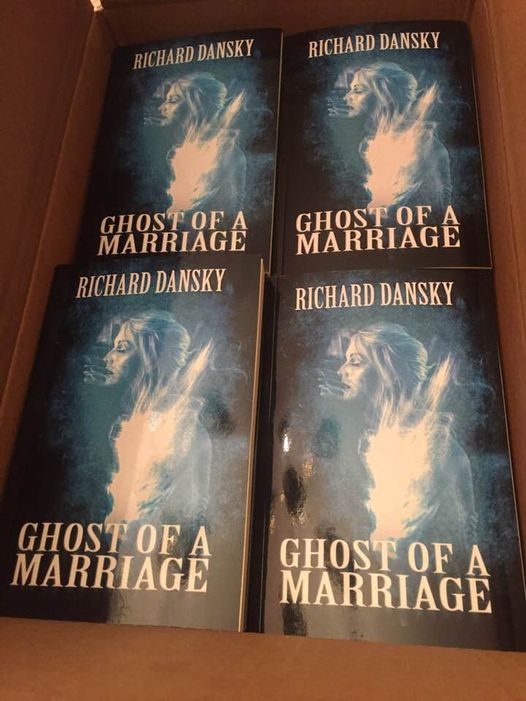 The book’s not due out until February, but guess what showed up on my doorstep the other day? That’s right, it’s Ghost of a Marriage. I am thrilled to death, and very much appreciate the kind folks at Crossroad Press who made this happen.
The book’s not due out until February, but guess what showed up on my doorstep the other day? That’s right, it’s Ghost of a Marriage. I am thrilled to death, and very much appreciate the kind folks at Crossroad Press who made this happen. 1-Your first reading was the opening reading of a major horror convention, Scares That Care. What were you feeling going up to the podium?
1-Your first reading was the opening reading of a major horror convention, Scares That Care. What were you feeling going up to the podium?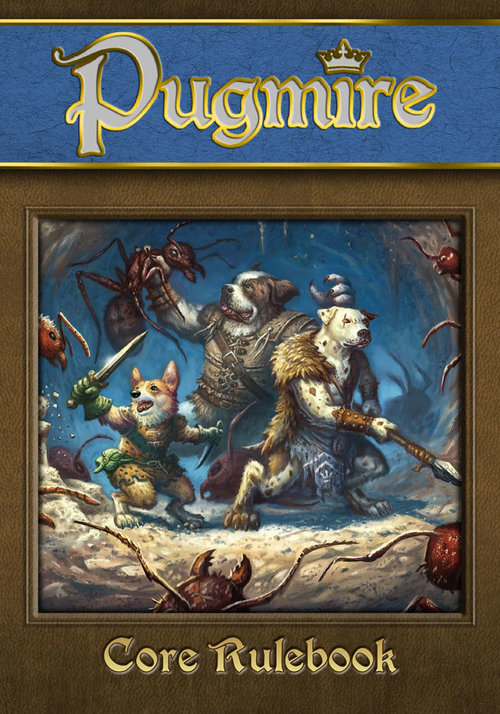 Welcome back to another edition of Five For Writing. This week’s interviewee is award-winning game designer and writer
Welcome back to another edition of Five For Writing. This week’s interviewee is award-winning game designer and writer 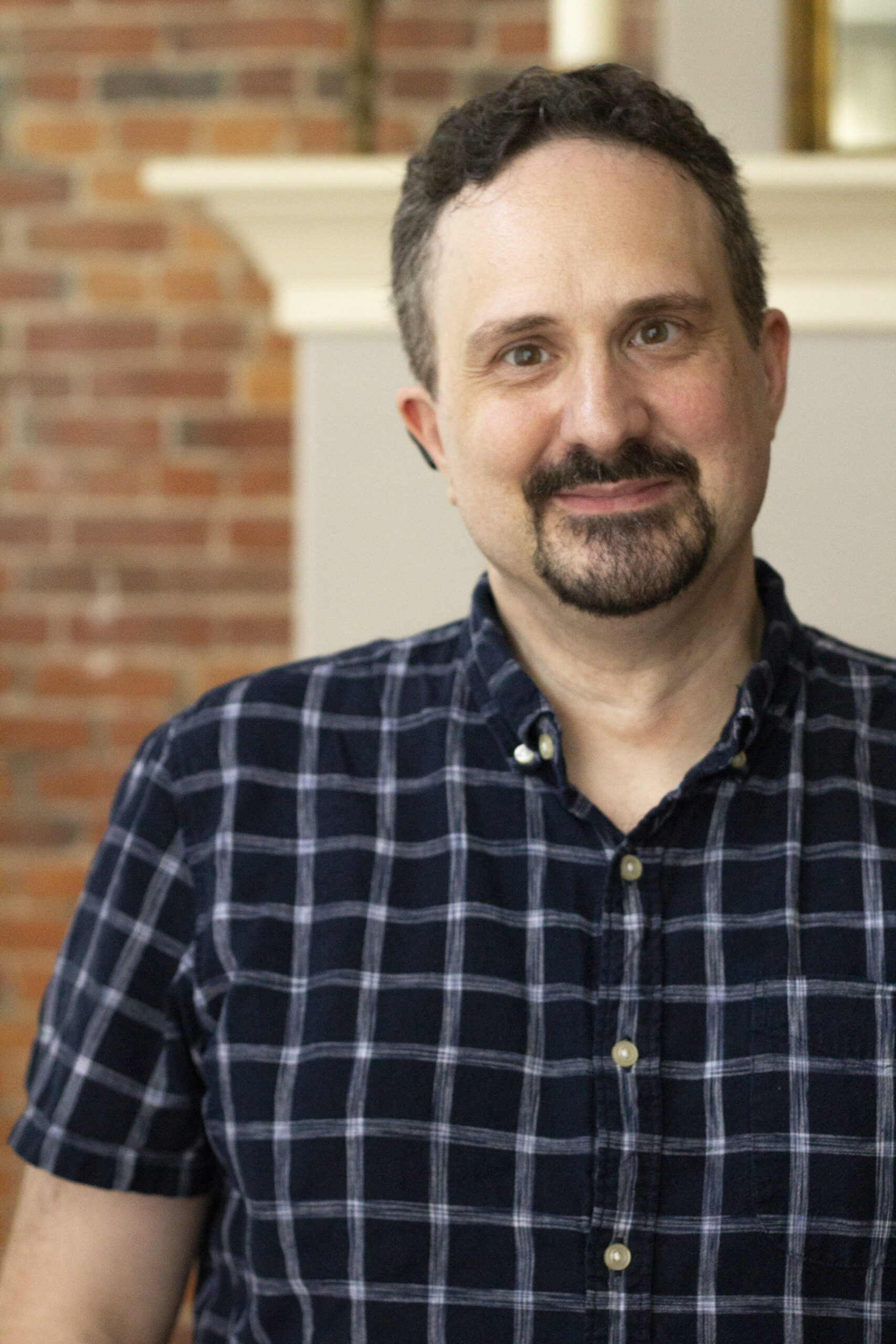 2-You’ve carried the banner for accessibility in gaming. How are you carrying on that fight?
2-You’ve carried the banner for accessibility in gaming. How are you carrying on that fight?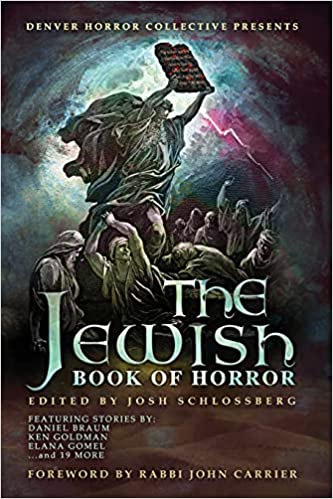 1-What inspired you to create
1-What inspired you to create 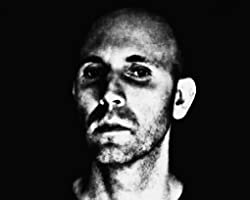 4-Your
4-Your 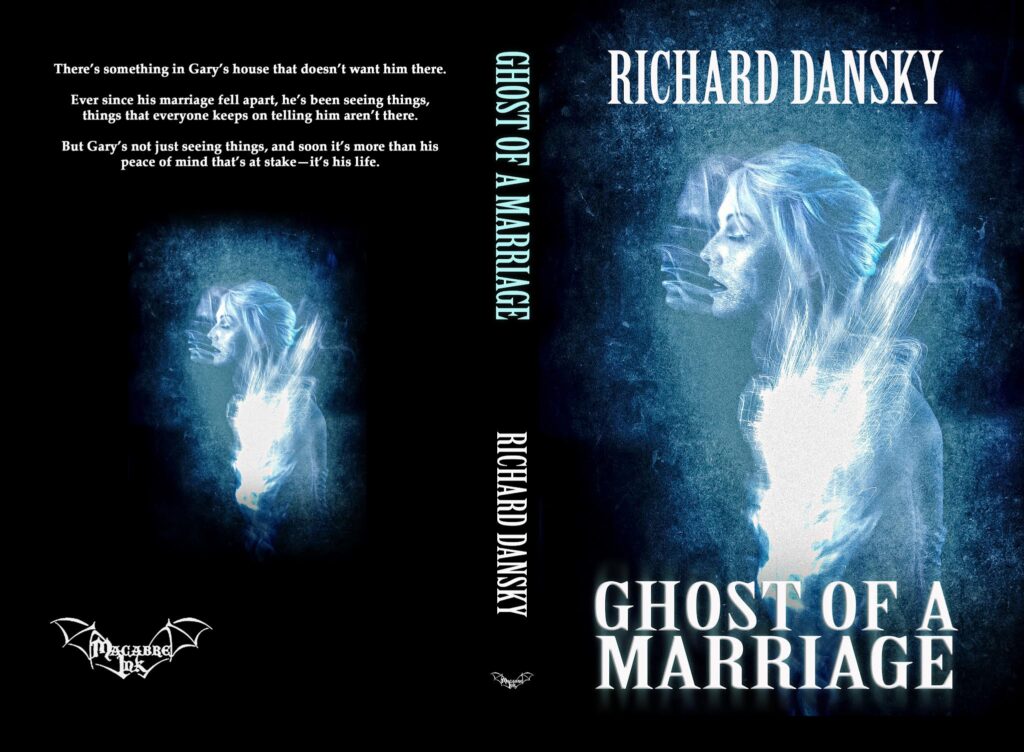
 1-You’ve staked out romance in games as territory you’re very comfortable in. How did that come to be?
1-You’ve staked out romance in games as territory you’re very comfortable in. How did that come to be?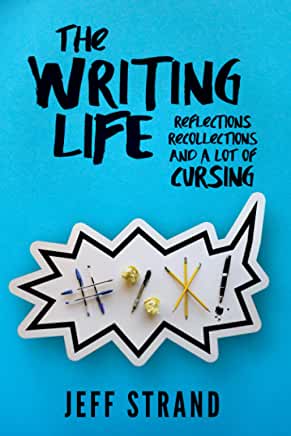 Time for another Five For Writing. This time I interview the talented and prolific
Time for another Five For Writing. This time I interview the talented and prolific 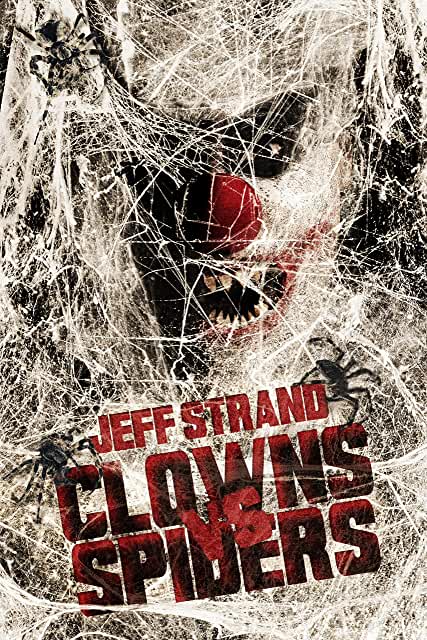 3-Clowns or spiders? Which are more frightening, and why?
3-Clowns or spiders? Which are more frightening, and why?